
Breastfeeding is very important for the health of your baby. Constant and direct contact between the baby’s skin and the mother’s skin in the first moments after birth is necessary to support the baby’s vitality and development.
Breast milk is the ideal food for the baby. It contains essential antibodies that help protect the baby from disease. Breastfed babies have a lower risk of obesity, diabetes later in life. Breast milk has a calming effect, children growing up breastfed cry less, have better eyesight. Breastfeeding promotes the development of the thymus gland, which produces the T cells needed to protect the immune system. Breast milk contains magnesium, which supports strong bones, zinc, and also helps the child’s intelligence development.
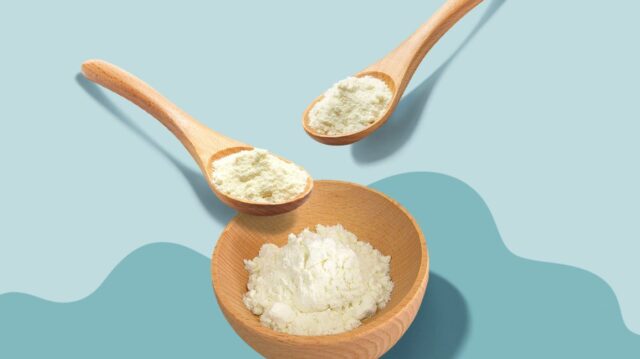
As a rule, mothers who do not have enough milk supplement their babies with supplementary food or completely transfer their babies to artificial feeding. It should be remembered that children under one year of age are contraindicated to milk of animal origin, both cow’s and goat’s. The liver of a small child cannot cope with the amount of protein and trace elements contained in animal milk, so there is a great risk of harming the health of the baby. Of course, this will not always be reflected in external factors. The only suitable food for babies who do not receive mother’s milk is milk formula. It is adapted for the child’s body according to the age requirements.
Of course, the baby’s diet must be balanced, because it is the key to a strong immune system. If you have had to resort to artificial feeding, choose a quality formula, follow the rules for its storage and preparation, and discuss the choice of manufacturer, portion size and switching to another formula with your pediatrician.
Most formula is made from cow’s milk, which undergoes special treatment. For children of all ages, a different technology is used for treating casein. This divides mixtures into adapted, unadapted and half-adapted.
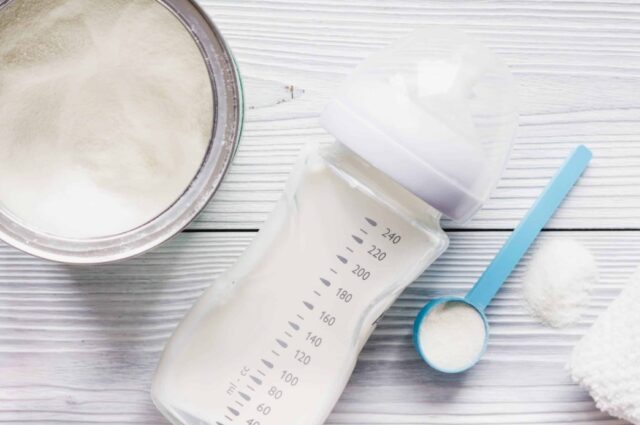
The best infant formula is undoubtedly the adapted one. For this type of nutrition, cow’s milk serum is completely purified of minerals and other impurities. At the same time, it is additionally saturated with vitamins, trace elements, nucleotides and polyunsaturated fatty acids. It is the lightest, most digestible and nutritious, because it is the most similar to mother’s milk.
Milk formula can be given to the baby from the first days of life, but it should always be aimed at natural feeding. There are situations where breastfeeding for certain reasons is not possible. Such examples are not many, but if so happened, you should not blame yourself and fall into melancholy, it is better to take care to choose a quality formula. When choosing a formula, the most important thing is to consider the age and weight of the baby. Each manufacturer indicates on the packaging the age category for which a particular product is intended, pay attention to these restrictions.
What should I do if a baby refuses formula?

Moms sometimes have trouble introducing formula at a later age, after the breastfeeding period. The baby may refuse to eat or not take the bottle. The process of accustoming the baby to the bottle can be quite difficult, but you should not panic. We will give you some tips that we hope will help you. So, how do you switch your baby to formula and get him accustomed to the bottle?
- Don’t try to get your baby accustomed to formula in one day. If you feel that lactation is waning, or you have other reasons for switching your baby to formula, start gradually (if possible). Try to use silicone nipple pads so that the texture of the nipple is not completely unfamiliar to the baby.
- Have the bottle offered by a family member, dad or grandma. The baby hears the smell of mom’s milk or already understands everything, which further aggravates the situation, and it becomes a shock to him. He does not understand why the feeding mechanism is broken.
- In the gradual transition to formula, offer the baby a bottle, but with breast milk.
- Experiment with nipples. Manufacturers offer a large selection, some larger, others smaller, resembling a woman’s breast in shape.
- Put the pacifier next to the baby, let him take it himself.
- Don’t insist on a bottle if the baby is over 6 months old, try offering the formula from a spoon.
- Do not leave a small child alone with a bottle. This is not safe.

Keep an eye on your baby’s bottle when feeding artificially. It should be sterilized with the pacifier once a week. The rest of the time it is enough to wash the bottle with a special bottle cleaner, and just pour boiling water over it before making formula. When you prepare milk formula, it is important to monitor its temperature, it should be close to body temperature – 36-37 degrees.
As for the choice of brand of formula for your baby, I personally, as a mother, recommend to pay attention to the dairy HiPP formula. This is a manufacturer of baby food with years of experience. Their products have European quality certificates and are made from organic raw materials. That is, organic milk is given by cows, which are fed only feeds without ethanol. Among its products is a wide range of dairy formulas for all occasions. After all, we are all different and, for example, a healthy full-fledged baby suits one milk mixture, while for another it will cause negative emotions and consequences.
1. HiPP Organic Pre Formula
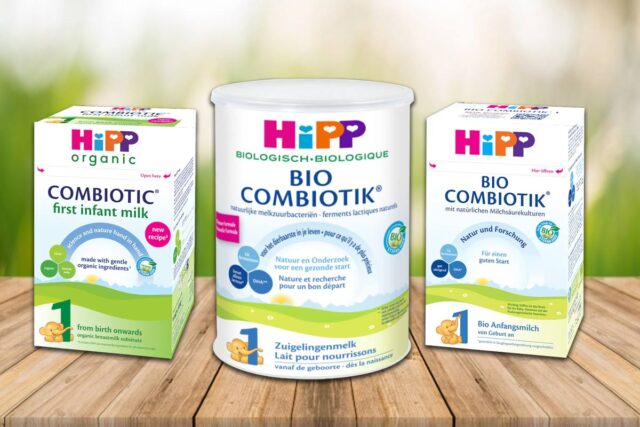
For prematurely born babies with low birth weight, a special formula marked PRE has been developed, which quickly saturates the not yet strong body and helps to proportionally gain weight and develop.
2. Hypoallergenic Formula
Babies who, for one reason or another, suffer from allergies will be able to get enough of the hypoallergenic HiPP formula intended for little allergy sufferers. The protein, which is the main allergen, is hydrolyzed (broken down into very small particles). This process reduces the risk of allergies to a minimum.
3. HiPP Anti Reflux Formula
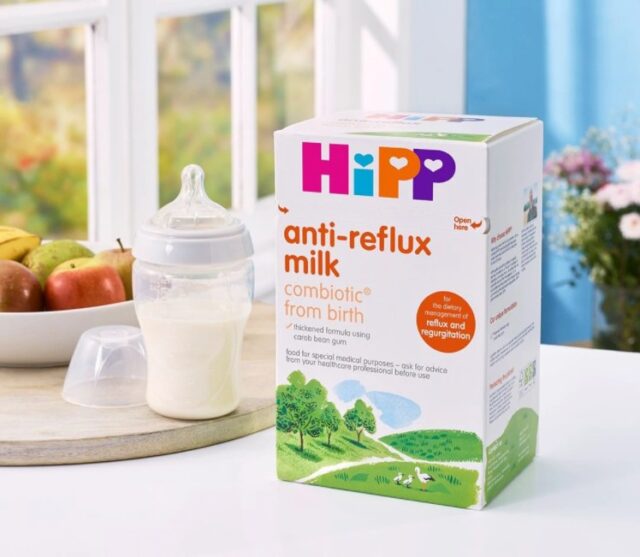
Some babies suffer from excessive regurgitation. They can benefit from the anti reflux formula which contains carob gum, which increases the density of the formula, so food is better retained in the stomach and vomiting and regurgitation (reflux) are reduced.
4. The Comfort Formula
The Comfort formula helps babies with sensitive tummies feel natural. It is packed with prebiotics and probiotics to help the gastrointestinal tract function healthily.
How to understand that the formula isn’t fit your child?
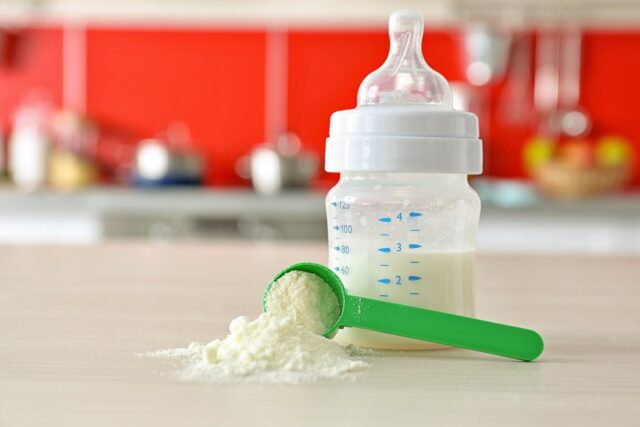
Of course, among young parents, you will rarely meet experts on artificial baby feeding. And so, let us tell you what you should pay attention to determine that the formula is chosen incorrectly:
- Allergies, diarrhea and other health problems appear.
- The formula is not fully digested – you find lumps in the stool.
- After feeding, the baby becomes restless and cries.
- The baby’s weight does not increase.
- Restless sleep.
- A rumbling in the stomach or bloating has appeared.
If your baby has these signs, you should definitely consult your pediatrician.
European baby formulas are not easy to find in US, but they can be delivered quickly by organicsbestshop.com.
As you can see, there are a lot of mixes, and it is easy to choose a mix that is suitable for your child. But this is not a reason to give up breastfeeding completely. Even the best artificial formula cannot replace full-fledged mother’s milk, which will provide your baby with immunity and maintain a bond with the mother.







